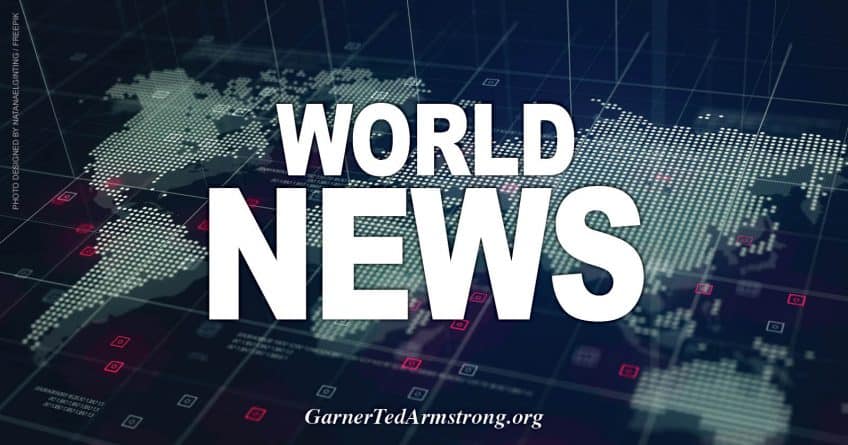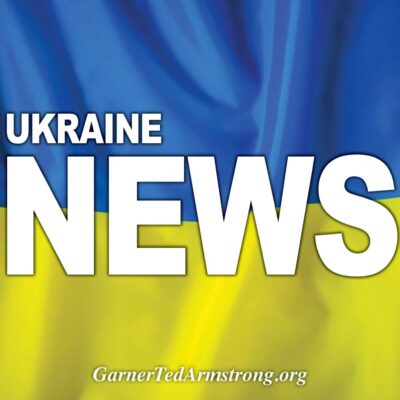BOGOTA, Colombia — Venezuelan President Nicolás Maduro’s “days in power are about to end” because of growing international and domestic pressure on his “mafioso” government and increasing desertions by his military troops, Colombian President Iván Duque said Sunday.
“Maduro is facing his last days, whether that’s one month or two, or one week, or one day,” Duque said in an interview at a military base in Bogota. He said Maduro’s power has declined precipitously in recent weeks: “Nobody has seen Maduro weaker.”
Duque’s country has directly felt the impact of Maduro’s years of corrupt government, which have turned one of Latin America’s richest countries into an economic and humanitarian catastrophe.
Colombia, itself still recovering from decades of guerrilla violence, has accepted more than 1.2 million Venezuelan refugees across their shared border amid a deepening disaster that has left much of the Venezuelan population starved for food, water, medicine and power.
Duque said he felt a moral urgency to help lead the opposition to Maduro. He likened the situation to that of people who can hear their next-door neighbor beating his wife and children every night.
“What’s the moral duty?” he said. “Wait until the next morning and pretend that everything is okay and say hello to your neighbor in the elevator? You have to denounce. And you have to do something so that abuse does not continue.”
Maduro insists his government is legitimate and has the support of the Venezuelan people. He has said the opposition efforts against him amount to an illegal coup, and he has accused Duque and President Trump of working out “war plans” against him.
Duque, 42, a lawyer educated at American University and Georgetown University who took office last August, has emerged as one of the leading voices against Maduro’s failed socialist government and has called for international sanctions.
He said he was certain that Maduro would be forced to leave power soon as his public support dwindles to a small base of hardcore supporters, including armed groups known as colectivos.
“He is using terror to preserve power,” Duque said. “He is losing support by the hour.”
Duque’s optimism about Maduro’s ouster stands in contrast to analysts who fear that Maduro, who has been in power since 2013 and was reelected last year in balloting widely seen as tainted by fraud, has proven to be remarkably resilient in the face of an opposition that has long been disorganized and fractured.

Venezuelan opposition leader Juan Guaidó, Colombian President Iván Duque and Vice President Pence pose for a photo after a meeting of the Lima Group concerning Venezuela at the Foreign Ministry in Bogota, Colombia, on Feb. 25. (Martin Mejia/AP)
A recent international effort to take humanitarian aid, much of it supplied by the United States, from Colombia into Venezuela ended with Maduro’s loyalists shooting activists at the border and setting truckloads of aid on fire.
[Amid chaos and defiance, Venezuelan opposition faces off against security forces as Maduro digs in]
While that was widely viewed as a momentum-busting setback for the opposition, Duque, who was at the border with Venezuelan opposition leader Juan Guaidó that day, said he believed the movement to oust Maduro was gaining strength rapidly.
It is possible, Duque said, that Maduro could be forcibly removed by Venezuelans as more and more military officers desert him in a “domino effect” and pledge allegiance to Guaidó, the leader of the National Assembly. Duque said more than 600 Venezuelan military soldiers have taken refuge in Colombia and desertions in Venezuela are growing “exponentially,” even among high-ranking officers.
Duque said he hoped Maduro would leave without violence: “It can be prevented and should be prevented.”
He said he would not send Colombian troops into Venezuela, and he said he believed the United States would not, either. U.S. officials have downplayed the idea of any U.S. military involvement, but Trump and Vice President Pence have said “all options are on the table” as they have called for Maduro to go.
Duque, whose presidential office features a bust of Abraham Lincoln that he bought in a Georgetown antique shop, said the Trump administration has acted with “values and principles” in its stand against Maduro, and he praised bipartisan support in the U.S. Congress. He met with Pence in Bogota last week and with Trump in the White House last month.
Duque said Maduro is being squeezed hard by a growing “diplomatic blockade” from the United States and countries across Latin America and beyond, including new U.S. economic sanctions Pence announced last week in Bogota.
The U.S. sanctions have targeted the assets of Maduro and his allies. Washington has also imposed strict sanctions on Venezuela’s state-owned oil company, known as PDVSA, which has cut off a key source of revenue to Maduro’s government. Washington and other nations who recognize Guaidó’s government have called for the transfer of any state assets from Maduro to Guaidó.
While Duque said the economic consequences of sanctions could mean even more refugees flooding into Colombia, he said it was worth it to end “the most brutal dictatorship we have seen in Latin America in recent history.”
Maduro “does not want to accept any humanitarian aid for the people that are dying in Venezuela, and that is a crime against humanity,” Duque said.
Sanctions and military defections, Duque said, have boosted Guaidó, who has emerged as the charismatic young face of efforts to chase Maduro from power. Most Western nations now recognize Guaidó, 35, a civil engineer turned legislator, as Venezuela’s legitimate leader.
Defying a Venezuelan government travel ban, Guaidó has spent the past week touring Latin American countries to build support. He announced over the weekend that he would return to Venezuela, where Maduro has vowed he will “face justice,” raising fears that Guaidó could be arrested or even killed.
“If he arrests him, the world pressure will pull him out of jail pretty soon,” Duque said. “But if he decides to do something nasty, nobody inside of Venezuela would support him. It would be like Nero burning Rome.”
Duque said he believed Guaidó could pressure Maduro to leave peacefully because he had consolidated power enough among the Venezuelan opposition, military defectors and disillusioned former supporters of Maduro and his predecessor, Hugo Chávez.
“If this happens without any military action, it would become a very important precedent for humanity,” Duque said. “The world should keep the accelerator on so that this happens sooner than later.”
Duque said he believed Maduro, if he left Venezuela, could find sanctuary in Cuba, which has long had a close relationship with Venezuela and helped build Maduro’s security and intelligence agencies.
“I think he would be very happy there; he has a lot of friends there,” Duque said.
It would also be important to Maduro, Duque said, that Cuba is not a party to the International Criminal Court and has no extradition agreement with the United States.
Along with Cuba, China and Russia have maintained their support for Maduro. Duque said countries aligned with Guaidó, particularly the United States, need to persuade China and Russia that it is in their interest to reject Maduro.
“If they want to have relationships in Latin America, I think they should evaluate why most of the countries in the hemisphere have denounced what’s going on in Venezuela,” Duque said.
Duque worked for 13 years in Washington at the Inter-American Development Bank, then returned to Colombia and spent four years in the national senate before becoming president last August.
He said Maduro’s treatment of his own people and corrupt links to drug cartels and armed guerrilla groups in his country and Colombia mean that “the Venezuelan dictatorship today is the biggest threat to regional security.”
[Disclaimer]









